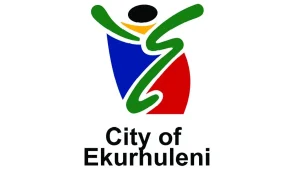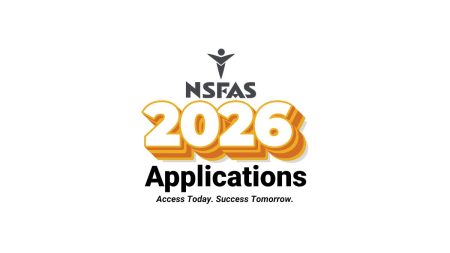In a move that brings much-needed relief to students relying on the National Student Financial Aid Scheme (NSFAS), the Department of Higher Education and Training (DHET) has announced an NSFAS Allowance Increase for the 2025 academic year. University students will see a 4% increase, while students at Technical and Vocational Education and Training (TVET) colleges will benefit from a significant 46% boost.
This increase is a direct response to the growing cost of living and aims to make higher education more affordable and accessible, particularly for students from disadvantaged backgrounds. But what exactly does this NSFAS Allowance Increase mean for students, and what other reforms are underway to improve their educational experience? Let’s break it down.
Understanding the NSFAS Allowance Increase for 2025
Dr. Nobuhle Nkabane, Minister of Higher Education, announced on Friday that the government, in collaboration with NSFAS, Universities South Africa (USAF), and student organizations, decided to adjust financial aid allocations for the 2025 academic year.
University Students: 4% Increase
University students will see a 4% increase in their allowances. This adjustment takes into account the rising costs of living, including food, transport, and study materials.
TVET College Students: 46% Increase
TVET college students will receive a substantial 46% increase in their living allowances. Their annual allowance will rise from R10,000 to R14,600. This marks a significant shift toward encouraging vocational education, which has often been underfunded and undervalued compared to traditional university education.
“The rising cost of living and the socio-economic challenges faced by many South Africans have been considered in this decision. These adjustments to student allowances are aimed at easing the financial burdens on students,” said Minister Nkabane.
Related: A Vision for NSFAS Under New Leadership -Transforming Student Funding
Why the Huge Increase for TVET Colleges?
TVET colleges play a crucial role in South Africa’s education system by providing practical skills and training that lead directly to employment. However, TVET institutions have long faced challenges, including stigma, financial limitations, and outdated infrastructure.
The 46% NSFAS Allowance Increase for TVET colleges is an effort to address these issues, making vocational training more appealing and ensuring students have the necessary financial support to succeed.
“To ensure social justice and equity, we’ve increased TVET students’ living allowances, from R10,000 to R14,600. The disparity in the increase between TVET and university students is a reflection of the government’s intention to strengthen vocational education,” Minister Nkabane explained.
The Crisis of Student Accommodation
While the NSFAS Allowance Increase is a welcome development, the issue of student accommodation remains a major crisis. Many NSFAS-funded students, particularly at TVET colleges, face severe challenges in finding safe and affordable housing close to their institutions.
Reports from eThekwini TVET College highlighted troubling incidents where landlords allegedly demanded sexual favors in exchange for accommodation. This disturbing practice underscores the lack of safe, affordable housing for students, putting them at greater risk of exploitation and safety concerns, including gender-based violence (GBV).
In response, Freeman Nomvalo, the NSFAS administrator, confirmed that investigations into these serious allegations are underway. “If found to be true, we will start the process of blacklisting those landlords and service providers,” Nomvalo emphasized.
Minister Nkabane’s Proposal: Moving Student Accommodation to Universities
Minister Nkabane acknowledged the accommodation crisis and is considering transferring responsibility for student accommodation from NSFAS back to universities. This move would allow institutions to better manage and regulate student housing, ensuring better safety and living conditions.
This change is being considered as an alternative solution to ease the growing frustration surrounding the lack of adequate housing options for students.
Abolition of Application Fees for Higher Education
Another significant reform is the removal of application fees for students applying to universities and TVET colleges. Currently, students in KwaZulu-Natal pay R250 to apply through the Central Applications Office (CAO), a private company responsible for university applications. With 172,000 students expected to apply for the 2025 academic year, CAO collects an estimated R43 million annually. However, many students from low-income families struggle with these fees, which can deter them from applying.
Minister Nkabane announced that she plans to abolish application fees as soon as possible. “No student should have to pay to access higher education—it is their constitutional right. This is one of the directives I will issue soon,” she affirmed.
This reform will remove a major financial barrier for many students, making it easier for them to access tertiary education without the added burden of application fees.
How Will the NSFAS Allowance Increase Affect Students?
Positive Impacts:
Increased Financial Support: University and TVET students will receive much-needed support to cover the rising cost of living, particularly in terms of food, transport, and accommodation.
Encouraging TVET Enrolment: The substantial increase in TVET allowances is expected to encourage more students to consider vocational education as a viable and rewarding alternative to university studies.
Easier Access to Higher Education: The scrapping of application fees is a crucial step in making higher education more accessible, particularly for students from low-income backgrounds.
Improved Housing Management: If universities take control of student accommodation, it could lead to better regulation, improved safety, and more affordable housing options.
Challenges That Remain:
Accommodation Crisis: Despite the NSFAS Allowance Increase, student accommodation continues to be a significant issue. More residences need to be built to accommodate the growing number of students.
Delays in NSFAS Payments: Students have frequently raised concerns about the delayed disbursement of NSFAS payments, which can disrupt their studies and financial planning.
Limited University Spaces: There remains a critical shortage of spaces at South African universities, as the number of applicants far exceeds the available places.
A Step in the Right Direction, But More Work Is Needed
The NSFAS Allowance Increase is undoubtedly a step forward in improving access to higher education in South Africa. However, the issues of student accommodation, NSFAS payment delays, and limited university spaces continue to pose significant challenges.
The government, higher education institutions, and student leaders must continue working together to address these issues and create a more equitable and accessible education system. The hope is that with these changes, South Africa’s students will have a better chance to succeed, regardless of their financial background.
Source: TimesLIVE.










